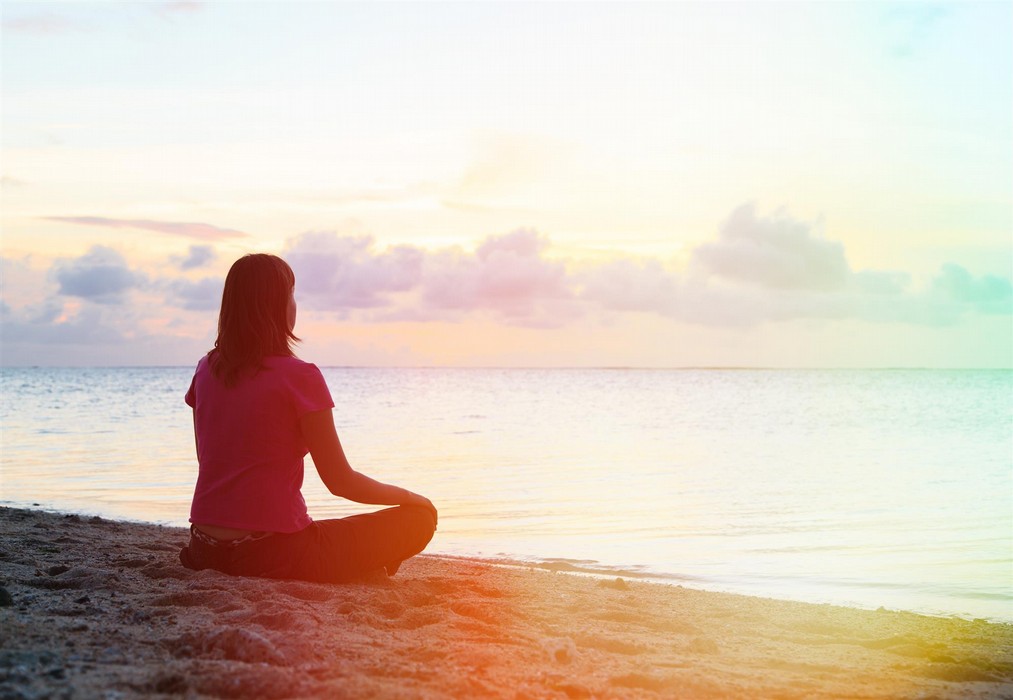Drugs, including alcohol and nicotine, have a bio-chemical effect on how the brain functions. Endorphins and other pleasure-inducing substances are released in the brain not only from drug use but also from other addictive activities. While over 27 million people reported using illicit drugs or abusing prescription drugs in 2015, only 10% sought help at substance abuse treatment centers.1
Even for those courageous enough to seek substance abuse treatment, relapse is all too common. Learning more about the three-fold disease of addiction and how it impacts the body, mind, and spirit is a brave step toward taking control of your own life – or helping a loved one.
An effective treatment program will focus on all the causes behind this behavior and provide long-term, life-expanding opportunities to support a lasting recovery. Let’s start by delving into the differences between drug abuse, dependence, and addiction to clarify the terminology.
When Does Use Become Abuse and Addiction?
 Drug Abuse means to use a drug or substance in a way that was not intended. This term describes the activity of taking prescription or illicit drugs at dangerous doses or for long periods of time. Tolerance begins to build up, meaning larger doses are needed to achieve the desired effect, while the negative health effects continue to increase.
Drug Abuse means to use a drug or substance in a way that was not intended. This term describes the activity of taking prescription or illicit drugs at dangerous doses or for long periods of time. Tolerance begins to build up, meaning larger doses are needed to achieve the desired effect, while the negative health effects continue to increase.
- Dependence is a physical condition where the body has become used to the presence of the drug. The body changes in response to regular doses and adjusts its own chemical production accordingly until it cannot function without the substance. Non-addictive drugs such as prednisone may also cause physical dependence. A cold-turkey withdrawal might be physically dangerous, so detox usually takes place in rehab facilities. A substitute substance may be used to allow the body to slowly adjust back to normal function.
- Addiction is a psychological condition where a person compulsively seeks a substance or activity despite being aware of the harmful effects. Addictive drugs and behaviors trigger the pleasure centers of the brain and this creates a self-rewarding cycle of behavior for the addict. Even health, job, or legal consequences may not be enough to break this cycle once it is established.
It’s possible to have any of these conditions by itself, but if left untreated, all three of these might develop together. Addiction treatment centers should address not only the physical dependence and psychological addiction, but the underlying causes that triggered the drug abuse in the first place.
Other Types of Addiction: Addictive Activities
Some activities can be as addictive as drugs and alcohol because they also trigger the release of endorphins, adrenaline, or other powerful chemicals within the brain. These pursuits meet the criteria of addiction when they are engaged in obsessively without regard for negative life consequences.
Certain mental health disorders are often at the root of these addictive behaviors which may require a recovery program to stop their destructive cycle. Some examples of addictions to non-substances include:
- Gambling
- Fast Food
- Thrill-seeking or Adrenaline
- Love or Sex
- Exercise
- Plastic Surgery
- Shopping or Stealing
- Internet Gaming or Virtual Reality
- Compulsive Lying
The Three Pillars of Complete Recovery
Real recovery must cover all aspects of the disease. While much focus is rightfully given to the effects of drug abuse, dependence, and addiction on the body, these behaviors also have both causes and impacts rooted in the mind and spirit. Addressing all three will result in long-lasting results and increase well-being after treatment.
Healing the Body
Research into what part of the brain controls addiction has shown effects in the cerebral cortex, which controls communication and decision making; and in the limbic system, which is the brain’s “reward” circuit, designed to make healthy activities pleasurable.
Short circuiting these systems overloads the brain and body in a way that normal activity could never duplicate. That’s what makes heroin so addictive. Until the body is separated from the substance through detoxification, the physical dependency will continue to control the individual.
Healing the Mind
Many substance abusers may not immediately recognize their psychological obsession with the substance or activity. Part of the definition of obsession is being unaware that you have crossed the line, and ignoring the humiliating consequences of your behavior. Rationalizations and excuses are the obsession’s defense system.
Taking a proactive approach to positive change releases the bonds of obsession. Addressing the mental side of substance abuse will open the patient’s eyes to the problem and allow them to change what is happening at the moment of decision.
Healing the Spirit
When you give up control of your choices and fall into addiction and dependence, your spirit becomes numb. Drugs become the center of your experience, and your eyes and ears are closed to everything else. Removing the drugs from your life and treating the underlying mental causes may leave a perceived emptiness unless you also reconnect to your Higher Power.
Your source of inspiration and choice of Higher Power is a very personal matter, and finding that connection to your spirituality is an essential part of a complete recovery. Replacing addiction as the center and touchstone of the day, reawakening and healing the spirit is a key component of the journey to sobriety at BlueCrest Recovery Center.
Individualized Substance Abuse Treatment Programs
Finding the right treatment program for yourself or a loved one should start with a review of their offerings to find the right fit and to ensure all three aspects of this disease will be seamlessly addressed. Just as important is the aftercare available to support a full and rewarding life post-treatment.
BlueCrest Recovery Center in New Jersey offers several levels of service and flexibility to serve as a stable foundation for change no matter what life commitments and challenges might exist.
Our life-changing 12-step programs include:
Partial Care Program
The Partial Care Program is an intensive one, addressing medical and mental health issues and includes relapse prevention planning. Without the constraints of residential care, the program meets five days a week. It includes group, individual, and family therapy as well as referring patients to supportive housing as needed.
Intensive Outpatient
The Intensive Outpatient Program is an accelerated version of traditional outpatient treatment. Designed for the needs of those with less severe addictions that do not require residential care, this choice allows patients to continue working, going to school, or living at home. It requires a commitment to regular attendance and active participation in the program. Sessions are Monday, Wednesday, and Friday, either in the morning or evening.
Outpatient Services
Outpatient Recovery Services allow full access to individualized private sessions to meet early stage recovery goals and focus on any sensitive health or life issues that need to be addressed as part of the healing process. An outpatient substance abuse treatment program is appropriate for less severe addictions, or as the next phase after successfully completing an inpatient program. These services and frequency will be tailored to the individual and allow patients to continue to live at home and go to work or school.
Aftercare Services
A critical part of a successful recovery is post-treatment support and the expanding opportunities the program provides to prevent relapse. After PC or IOP treatment, this process offers pragmatic services to expand the opportunities available to our patients.
We will help with everything from vocational/educational opportunities and job coaching to holistic health service referrals including yoga, meditation, martial arts, or music and art therapies. Opening up life’s endless possibilities is one of the great rewards of sobriety.
Finding A New Direction
 Addiction and drug dependence can make finding your direction difficult. Reaching your goals and healing your relationships is still possible but depends on taking action and making the choice to be healed. BlueCrest Recovery Center provides every resource needed to chart a new course. If you cannot travel to our facility in Woodland Park, NJ, a search for drug rehab centers near me will provide your nearest options for treatment.
Addiction and drug dependence can make finding your direction difficult. Reaching your goals and healing your relationships is still possible but depends on taking action and making the choice to be healed. BlueCrest Recovery Center provides every resource needed to chart a new course. If you cannot travel to our facility in Woodland Park, NJ, a search for drug rehab centers near me will provide your nearest options for treatment.
At BlueCrest, we believe that anyone can choose positive change and achieve their goal of lifelong sobriety. Whatever the current situation, we have the substance abuse treatment, support services, therapies, and sources of inspiration needed to free yourself from the constraints of drug addiction. Reach out for guidance now. It’s time to experience the freedom of sobriety.
Sources:


















